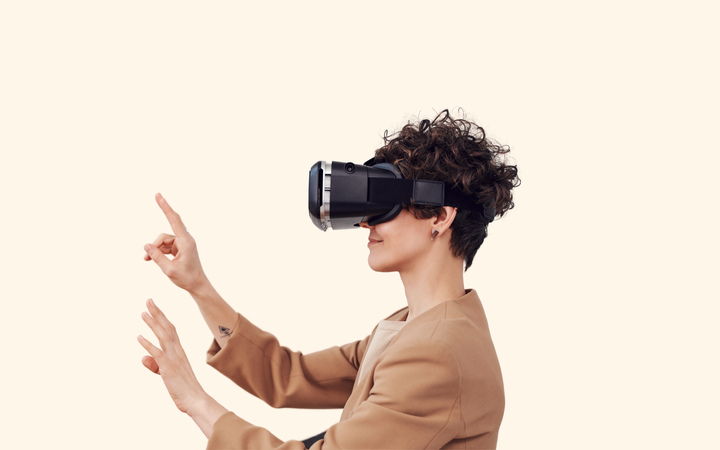How AI is Shaping the Future of Influencer Marketing

The world of influencer marketing is undergoing a seismic shift, driven by the relentless march of artificial intelligence (AI). As AI technologies become more sophisticated and ubiquitous, they are reshaping the influencer marketing landscape in profound ways.
From identifying the most impactful influencers to optimizing content and measuring campaign performance, AI is revolutionizing how brands approach influencer collaborations. By harnessing the power of machine learning, natural language processing, and computer vision, marketers can now make data-driven decisions that enhance the efficiency and effectiveness of their influencer strategies.
In this article, we will explore the myriad ways in which AI is transforming influencer marketing. We will delve into the rise of virtual influencers, examine how AI is enabling hyper-targeted influencer discovery, and investigate the role of AI in personalizing content and measuring campaign impact.
Defining AI in Influencer Marketing
AI technologies like machine learning, natural language processing, and computer vision are transforming influencer marketing as we know it. These cutting-edge tools enable brands to analyze vast amounts of data, identify patterns, and make predictions with unprecedented accuracy and speed.
By leveraging AI, marketers can now identify the most relevant and impactful influencers for their campaigns with laser-like precision. AI algorithms can analyze an influencer's audience demographics, engagement rates, and content performance to determine their fit with a brand's target market and messaging. This not only saves time and resources but also ensures that influencer partnerships are optimized for maximum impact.
Moreover, AI can help predict emerging trends in the influencer space, allowing brands to stay ahead of the curve and capitalize on new opportunities. By analyzing social media conversations, hashtags, and user behavior, AI tools can identify rising stars and hot topics before they go mainstream. This enables marketers to craft timely, relevant content that resonates with their audience and drives engagement.
AI is also revolutionizing the way influencer content is created and optimized. Through advanced computer vision and natural language processing techniques, AI can analyze the elements of top-performing posts—such as imagery, captions, and hashtags—and provide data-driven recommendations for improvement. This ensures that influencer content is tailored to the unique preferences and behaviors of each influencer's audience, maximizing its impact and reach.
Perhaps most importantly, AI is enabling brands to measure the performance of their influencer campaigns with unprecedented granularity. By tracking key metrics like engagement, reach, and conversions, AI tools can provide a holistic view of an influencer's impact on brand awareness, consideration, and sales. This allows marketers to optimize their budgets, double down on high-performing partnerships, and continuously refine their strategies for maximum ROI.
In short, AI is ushering in a new era of data-driven, hyper-targeted, and highly measurable influencer marketing. As AI technologies like those offered at ryme.ai continue to evolve and mature, we can expect to see even more innovative applications in the influencer space—from dynamic content personalization to fully automated campaign optimization. The future of influencer marketing is undoubtedly AI-powered, and brands that embrace these cutting-edge tools will be well-positioned to succeed in this brave new world.
The Rise of Virtual Influencers
Emerging as a significant innovation in influencer marketing, virtual influencers are reshaping how brands interact with their audiences. These AI-generated entities are crafted with precision, enabling brands to execute highly controlled and personalized engagements. Unlike traditional influencers, virtual counterparts provide brands with unmatched flexibility to deliver consistent messaging, free from the constraints of human schedules or unpredictability. This adaptability allows virtual influencers to maintain a brand’s presence across various platforms seamlessly.
The allure of virtual influencers extends beyond their digital origins, focusing on their ability to consistently embody brand values. Figures like Lil Miquela and Shudu have captured the imagination of millions, partnering with top-tier brands and setting new standards for audience engagement. These virtual personas can be intricately molded to reflect precise brand characteristics, ensuring a cohesive and unwavering brand identity across all interactions.
Creating Authentic Personas
For virtual influencers to truly connect with audiences, they must transcend mere digital constructs and embody authentic personas with compelling narratives. Utilizing machine learning, developers create these personas to exhibit relatable behaviors and characteristics that align with audience expectations. By continuously analyzing engagement metrics, brands can refine these virtual characters, enhancing their appeal and ensuring they remain engaging and relevant. This iterative refinement process ensures that virtual influencers evolve alongside audience preferences and market trends.
Integrating with Human Influencers
Combining the strengths of virtual and human influencers offers brands a strategic advantage. This hybrid approach leverages the genuine connection and relatability of human influencers with the curated precision of virtual personas. By employing both influencer types, brands can craft multifaceted campaigns that resonate deeply with varied audience segments. This method not only amplifies engagement but also ensures that brand messages are consistently and effectively communicated across all platforms.
AI-Driven Influencer Discovery and Vetting
Incorporating AI into influencer marketing transforms the process of identifying and evaluating potential collaborators. AI systems sift through expansive datasets to pinpoint influencers whose profiles align seamlessly with brand objectives. By analyzing key attributes such as audience characteristics, engagement patterns, and content relevance, AI empowers brands to forge connections with influencers who can drive substantial impact. This analytical approach enhances the effectiveness of influencer marketing strategies, ensuring partnerships are not only relevant but also strategically advantageous.
AI's scope extends to mitigating risks associated with influencer engagements. By scrutinizing indicators of authenticity and audience quality, AI tools help brands avoid deceptive practices like inflated follower counts and engagement manipulation. This level of scrutiny is essential for preserving campaign integrity, ensuring that marketing endeavors engage genuine audiences and foster authentic interactions. Utilizing AI in this capacity serves as a protective measure, safeguarding both brand reputation and the efficacy of marketing investments.
Predictive Analytics for Campaign Success
Predictive analytics emerges as a pivotal component of AI-enhanced marketing efforts. Through historical performance analysis, AI provides foresight into an influencer's potential impact, guiding brands in making strategic decisions regarding partnerships. This foresight facilitates the optimization of campaign strategies from the outset. As campaigns unfold, AI supports dynamic adjustments by tracking real-time engagement and refining tactics to boost campaign success. This agile approach enables brands to swiftly adapt to shifting audience preferences and market dynamics.
Fraud Detection and Brand Safety
AI plays a crucial role in ensuring brand protection by identifying irregularities in engagement data and highlighting potentially misleading content. These tools shield brands from fraudulent activities that could compromise campaign outcomes. By maintaining vigilance against inauthentic interactions, AI ensures influencer partnerships remain genuine and productive. Additionally, AI's capability to preemptively identify and address content that may conflict with brand values strengthens brand safety protocols. This proactive stance empowers brands to maintain their integrity and uphold consumer trust.
Personalizing Influencer Content with AI
AI plays a pivotal role in crafting influencer content that deeply resonates with audiences. By leveraging data analytics and machine learning, AI tools can discern patterns in audience preferences and behaviors. This allows influencers to create posts that align closely with audience desires while maintaining their distinctive style. The result is content that not only captures attention but also fosters meaningful engagement, strengthening the bond between influencers and their followers.
Optimizing for Platforms and Formats
AI technology excels in fine-tuning content for specific platforms, ensuring messages are delivered in the most effective manner. By analyzing user interactions and platform algorithms, AI determines the best formats, lengths, and posting schedules. This tailored approach maximizes content visibility and interaction, as each piece is optimized to play to the strengths of its respective platform. Whether it's a concise tweet or an elaborate YouTube video, AI ensures content is strategically positioned for success.
Iterative Improvement Through Data
The adaptive nature of AI allows for continuous content enhancement based on real-time feedback. As influencers publish content, AI systems analyze how audiences interact with it, providing insights that inform future strategies. This feedback loop enables influencers to refine their approach, ensuring content remains relevant and impactful. Over time, this data-driven refinement process leads to increasingly targeted and effective content, enhancing overall campaign performance.
Measuring Influencer Marketing Impact with AI
AI transforms the evaluation of influencer marketing by offering advanced attribution capabilities that link influencer efforts to critical brand outcomes. This innovative technology maps online interactions to measurable impacts such as sales growth and increased web traffic, providing a comprehensive perspective on return on investment (ROI). By deciphering these connections, brands gain clarity on the true effectiveness of influencer collaborations, allowing for strategic budget adjustments toward partnerships that maximize value.
AI's analytical prowess extends to highlighting the most effective influencers within a brand's network. By examining intricate data patterns, AI tools identify which influencers significantly enhance brand visibility and drive engagement. This knowledge equips marketers with the ability to refine their influencer selection criteria, ensuring that collaborations align with overarching brand goals. With this insight-driven approach, brands can fine-tune their strategies to achieve superior market performance.
Audience Insights and Segmentation
AI's capacity to analyze audience data provides a profound level of detail in understanding how consumers interact with influencer content. This comprehensive analysis supports the segmentation of audiences into distinct groups based on characteristics such as preferences, behaviors, and demographic profiles. Leveraging these insights, marketers can craft highly targeted campaigns that resonate with specific groups, boosting engagement and brand relevance.
Guided by AI-driven segmentation, brands can adapt their messaging and product offerings to meet the unique expectations of each audience segment. This precision not only enhances campaign impact but also fosters deeper brand affinity through personalized engagement. The ability to pivot marketing strategies based on audience insights ensures that brands remain responsive to shifting consumer dynamics, maintaining a competitive advantage.
Sentiment Analysis and Social Listening
AI tools excel at interpreting consumer sentiment around brands and products by evaluating how audiences respond to influencer content. These tools offer detailed insights into consumer attitudes, enabling brands to identify areas of strength and address potential challenges. By staying informed of audience perceptions, brands can proactively refine their strategies to better align with consumer sentiments.
Social listening capabilities powered by AI allow brands to track discussions about their products and competitors across multiple channels. This ongoing analysis aids brands in uncovering emerging trends and consumer concerns, guiding strategic decisions that bolster brand positioning. Through effective sentiment analysis and social listening, brands maintain an acute awareness of consumer perspectives, ensuring that marketing efforts are consistently relevant and effective.
Future of AI-Powered Influencer Marketing
Looking ahead, AI's influence on influencer marketing promises to usher in a new era of engagement and precision. The seamless fusion of virtual and human influencers across various channels will allow brands to craft intricate and immersive experiences. By tapping into the strengths of both influencer types, marketers can ensure their messages resonate deeply with diverse audiences, maximizing reach and impact.
Advanced AI capabilities will drive the evolution of content delivery, focusing on real-time customization to align with consumer desires. As preferences shift, AI will empower brands to adjust content strategies dynamically, ensuring relevance and enhancing user engagement. This approach will transform how brands interact with audiences, fostering stronger connections and encouraging brand advocacy.
Expanding Horizons: New Formats and Experiences
The emergence of AI influencers in realms like augmented reality and interactive digital environments offers an exciting frontier for engagement. These platforms present unique opportunities for brands to create captivating experiences that engage consumers in novel ways. By embedding AI-driven influencers within these spaces, brands can tell compelling stories that captivate audiences and deepen brand loyalty.
In these digital arenas, AI influencers serve as immersive guides, enhancing user experiences with intelligent interactions. This evolution allows brands to explore new storytelling dimensions, crafting emotionally resonant narratives. By integrating themselves into these interactive ecosystems, brands can establish enduring connections that leave a lasting impression.
Advancements in AI Algorithms and Automation
The refinement of AI technologies will enhance the ability to identify optimal influencer partnerships and predict campaign outcomes with greater accuracy. As these systems advance, brands will gain unparalleled insights into influencer performance, enabling precise strategic adjustments. This evolution will empower marketers to anticipate trends and allocate resources with remarkable efficiency.
The potential for fully automated influencer campaigns is on the horizon, driven by AI's capacity to optimize in real-time. By leveraging machine learning, AI systems can autonomously refine campaign parameters based on live data. This capability not only streamlines management but also ensures campaigns are continuously optimized for maximum efficacy. As brands embrace this level of automation, they unlock new efficiencies and drive greater returns on their marketing investments.
As AI continues to reshape the influencer marketing landscape, it's clear that brands must embrace these cutting-edge technologies to stay competitive. By harnessing the power of AI, you can unlock new levels of efficiency, precision, and impact in your influencer campaigns. If you're ready to take your influencer marketing to the next level, sign up to start optimizing your influencer marketing campaigns with us today.

